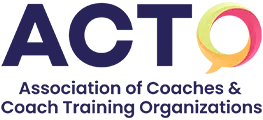Topic: Building rapport in coaching using the Enneagram Instinctual Biases This forum is FREE for members, members must login to access the member registration link. CCE approval pending.
Presenter: Maria Jose Munita – ICF Member
Date: March 31, 2021, 8AM PDT/11AM EDT
Public Registration: Register now
We humans are complicated creatures living in a complex world. At the same time, there is a logic to human nature: Find actions that can help us meet common, predictable problems and automate our responses to them through the development of habitual patterns.
Each day we must manage a variety of life challenges, and in order to manage these tasks more efficiently, nature has endowed us with habitual impulses or drives that spur habitual behaviors that help us make it through the day.
The Awareness to Action approach to the Enneagram groups these impulses into three domains or clusters—“Preserving,” “Navigating,” and “Transmitting,” and while we all pay some attention to all three domains, we each have a bias toward one of these domains more than to the other two. This “instinctual bias” creates distinct patterns of behaviors in people and these biases can be the source of our greatest strengths and most challenging weaknesses. They can also be the answer to why we effectively interact with some people but not others. Becoming aware of the tendencies and learning to manage them intentionally and skillfully, rather than be managed by them, is key.
The instinctual biases are deeply ingrained tendencies to find certain aspects of life more important than others and to focus our attention accordingly. In short, they are at the heart of our systems of values—the fundamental biological needs that matter most to us. For this reason, they have a profound impact on our work and personal lives. They influence what interests us and, accordingly, what we spend our time on. They influence what skills we develop and what skills we tend to neglect developing. They influence who we tend to get along with and who we often come into conflict with.
Learning to become aware of these habitual patterns and learning how to manage our behaviors related to them is the critical first step to becoming more effective in all aspects of life, including coaching and leadership.
In this session, we will explore how this model can help us understand our own coaching style through the lens of the instinctual biases, allowing us to be more aware of our strengths and potential shortcomings. It will also provide a framework to understand our coachees and clients, helping us listen to them more effectively, and providing better tools to design actions that can be useful to them.

Maria Jose is a professional coach and personality styles specialist, with 13 years of experience in the field. She has a degree in Economics and Business administration. Worked in the Oil and Banking industries for many years, holding positions in Marketing, Planning, and Human Resources. Then became certified as an ontological coach by The Newfield Network, and as an Enneagram teacher in the Awareness to Action Approach.
As a coach and consultant, has worked on leadership development and team effectiveness with clients from different industries. As an Enneagram Trainer, provides Enneagram-based corporate and open trainings and certification programs. Has delivered talks, conference presentations, workshops and Certification programs in different countries of North and South America, Europe and the Middle East. Over the last year, she has been actively doing online trainings and webinars for people from all over the world.
She is the co-author of “The Enneagram Guidebook: An Introduction to Personalities@Work” and “Instinctual Leadership: The 27 Subtypes at work”, together with Mario Sikora.
Maria Jose is Vice President at Awareness to Action International, a global consulting group that focuses on helping clients master the human side of leadership, with consultants based on five continents working in multiple languages.
